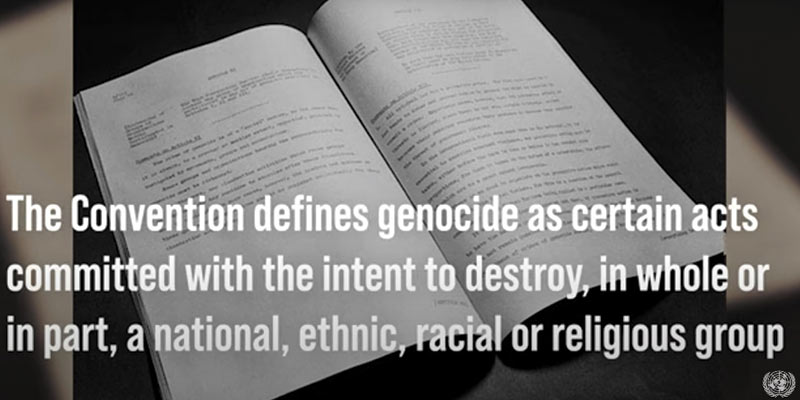- World
- Jan 15
Explainer - 1948 Genocide Convention
• South Africa accused Israel of committing genocide against Palestinians and pleaded with the International Court of Justice to order an immediate halt to Israeli military operations in Gaza.
• Israel has vehemently denied the allegations.
• South Africa is seeking preliminary orders to compel Israel to stop its military campaign in Gaza, where more than 23,000 people have died.
• Israel says it is battling a fierce enemy that carried out the deadliest attack on its territory since its creation in 1948. Israeli leaders insist they are following international law and doing their utmost to avoid harm to civilians. The country blames Hamas for the high death toll, saying its enemy operates in residential areas.
• Israel launched its war in Gaza after a cross-border rampage on October 7 by militants from Hamas. Israeli officials said 1,200 people were killed. They abducted around 250 others, nearly half of whom have been released.
• The case against Israel revolves around the Genocide Convention that was drawn up in 1948 following World War II.
• A decision on South Africa’s request for so-called provisional measures will probably take weeks.
What is the Genocide Convention?
• The Convention on the Prevention and Punishment of the Crime of Genocide (Genocide Convention) is an instrument of international law that codified for the first time the crime of genocide.
• The Genocide Convention was the first human rights treaty adopted by the General Assembly of the United Nations on December 9, 1948 and signified the international community’s commitment to ‘never again’ after the atrocities committed during the World War II.
• Its adoption marked a crucial step towards the development of international human rights and international criminal law as we know it today.
• According to the Convention, genocide is a crime that can take place both in time of war as well as in time of peace.
• The definition contained in Article II of the Convention describes genocide as a crime committed with the intent to destroy a national, ethnic, racial or religious group, in whole or in part. It does not include political groups or so called “cultural genocide”.
• Its preamble recognises that “at all periods of history genocide has inflicted great losses on humanity” and that international cooperation is required to “liberate humankind from such an odious scourge”.
• The Convention establishes a duty on State Parties to take measures to prevent and to punish the crime of genocide, including by enacting relevant legislation and punishing perpetrators.
• That obligation, in addition to the prohibition not to commit genocide, have been considered as norms of international customary law and therefore, binding on all States, whether or not they have ratified the Genocide Convention.
• The definition of the crime of genocide, as set out in the Convention, has been widely adopted at both national and international levels, including in the 1998 Rome Statute of the International Criminal Court (ICC).
• The International Court of Justice (ICJ) has repeatedly stated that the Convention embodies principles that are part of general customary international law.
• The Genocide Convention has been ratified or acceded to by 153 Member States.
• Every year on December 9, the United Nations marks the adoption of the Genocide Convention, which is observed as ‘International Day of Commemoration and Dignity of the Victims of the Crime of Genocide and of the Prevention of this Crime’.
Manorama Yearbook app is now available on Google Play Store and iOS App Store

